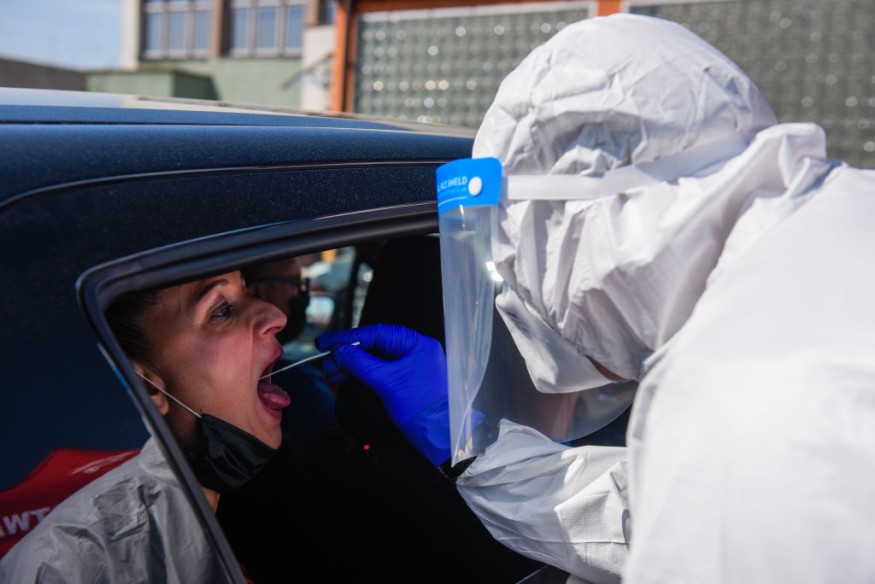A new study recently found COVID-19 saliva tests are easier and more effective, not to mention possibly more accurate compared to the nasopharyngeal swab tests.
An article posted on The HealtSite.com specified, with extended delays and shortages, testing for SARS-CoV-2, the virus causing COVID-19, has been a key stumbling point in combating the pandemic.
Various tests have been developed for the detection of COVID-19, using a variety of analyses. While some are treated as superior to others, and a few deliver precise results.
The most common approaches of testing are the so-called "stick in the nose" and the throat swab test, although scientists have discovered that saliva testing might be more effective.
ALSO READ : 'Worrying' Mutation Detected in the UK

Saliva Test
While previous research had discovered that nasopharyngeal swab tests are more precise when it comes to detecting positive COVID-19 infection, a new report suggests that saliva-based tests can be more precise at identifying negative COVID-19 cases, with a far less invasive discomforting process.
Scientists from Augusta University in the United States discovered that saliva testing could be more effective for COVID-19 testing.
The research team said, including a simple processing step in saliva samples prior to testing needs to improve the detection rates of COVID-19 detection, lessen nose-throat testing problems, and make mass monitoring easier.
As a result, they found that the use of a "bead mill homogenizer" to treat samples of saliva prior to real-time PR or RT-PCR testing results in better sensitivity compared to the use of nasopharyngeal swab or NPS samples.
According to Ravindra Kolhe, lead investigator of the study, Clinical Validation of a Sensitive Test for Saliva Collected in Healthcare and Community Settings with Pooling Utility for Severe Acute Respiratory Syndrome Coronavirus 2 Mass Surveillance, published in The Journal of Molecular Diagnostics, saliva, as a sample type for a COVID-19 test, was a game-changer in the fight against this global health crisis.
It helped with increase compliance from the population for testing along with lessened exposure risk to the healthcare workers during the process of collection.
Bead Mill Homogenizer
For this particular research, according to a Medical Xpress report, the researchers analyzed 240 matched NPS and sample pairs of saliva for SARS-CoV-2 RNA by RT-PCR in the initial phase known as protocol U.
As indicated in this report, 189 matched pairs, which included 85 that had previously been assessed during protocol U, underwent a process via an Omni bead mill homogenizer before RT-PCR testing during the study's second phase.
A further investigation was carried out along with specimens from procedure U and SalivaAll to find out if bead homogenization impacted clinical sensitivity in NPS specimens.
Lastly, the efficacy of a five-sample pooling technique was analyzed. The Omni bead homogenizer was used to handle 20 positive pools, which included one positive and four negative samples, before pooling for COVID-19 RT-PCR testing and comparing to controls.
Study Findings
During the initial phase, 28.3 percent of NPS, saliva, or both specimens turned positive for COVID-19. When compared to NPS, the detection rate in saliva was below 50 percent versus 89.7 percent.
In the 2nd phase, 50.2 percent of saliva, NPS, or the samples were found positive for COVID-19. When compared to NPS specimens, the detection rate in saliva was higher than 97.8 percent versus 78.9 percent.
Lastly, the detection rate for the 85 saliva samples tested with both procedures was 100 percent for samples with testing that went through SalivaAll, and 36.7 percent for those tested through Procedure U.
Related information is shown on TODAY's YouTube video below:
RELATED ARTICLE : US FDA Authorizes At-Home COVID-19 Test; Results in Just 30 Minutes
Check out more news and information on COVID-19 on Science Times.
© 2026 ScienceTimes.com All rights reserved. Do not reproduce without permission. The window to the world of Science Times.










